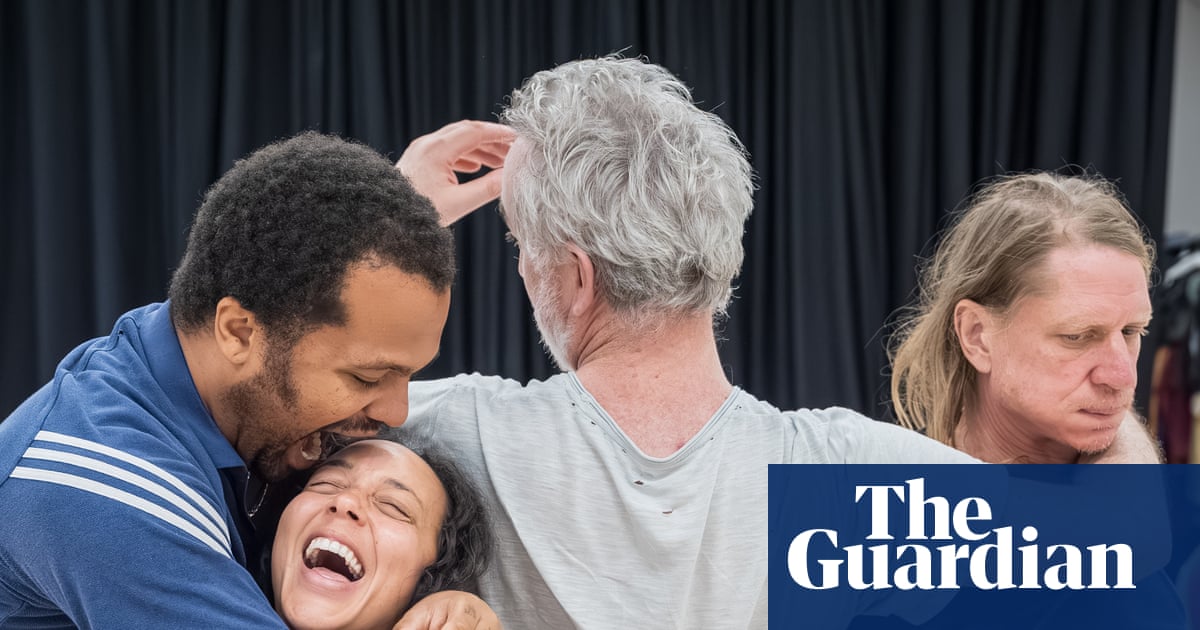Every word is a wrestling match for Alice Birch. “I find it quite painful,” the award-winning playwright and screenwriter admits. “It’s ugly and horr
Every word is a wrestling match for Alice Birch. “I find it quite painful,” the award-winning playwright and screenwriter admits. “It’s ugly and horrible. It’s not just pouring out of me. It feels, yeah …” She shrugs in the empty courtyard of London’s Somerset House. “… not very healthy or whatever.”
We meet early in the morning as Birch needs to race off to a secret project. She is a sought-after TV writer (on Succession and Normal People) but Birch’s blazing plays are known for their form and fury. Her brutal breakout in 2014, Revolt. She Said. Revolt Again, was written in a 72-hour whirl. She wrote her latest, Romans – now on at the Almeida – in around 10 days. “Of course I didn’t ‘write’ it in 10 days,” she clarifies. “I wrote it in eight years. It’s just that the words,” she waves the air around her head, “were up here.” She would love to squirrel away for a year working solely on one project. “But I guess life and kids and all the rest of it just never made that possible.”
She read outside her comfort zone: Hemingway, Lawrence, 70s American novels and ‘trying to read Ulysses and failing’
Romans is a disruptive, broad exploration of both masculinity and the novel over the last 150 years. The story centres on Jack, played by Kyle Soller, who we first meet as a 10-year-old boy. Each act of juvenile Jack’s impossibly stretched life is framed by a different historical literary style: 19th-century novel, modernism, post-modernism. “The idea that it’s almost impossible,” Birch says, “is where it feels exciting.” Form, for her, always comes first. Following Jack and his brothers across time, this is Birch’s first play with a central narrator. “It can feel a bit old-fashioned,” she says, a phrase that will probably not feature in reviews of this play, “but a novel that’s interested in a man defining himself, requires a man to stand on stage on his own and speak.”
Birch has wanted to write about masculinity for years. “I often get notes on my male characters,” she says, “like they’re not as well formed as the women.” This “felt like an interesting challenge”. Romans opens in a time when women are giving birth on the other side of walls while men smoke cigars, and it travels through boarding schools, prisons, cults and podcast recordings. “Lots of the later sections of the play involved thinking about Andrew Tate and the manosphere,” she grimaces. “That was miserable.”
Across the years of mulling over the idea, Birch read outside her comfort zone: Ernest Hemingway; DH Lawrence; 70s American novels; “trying to read Ulysses and failing.” Given the time and a serene place to read, she would pick up a Hardy or Brontë. “People on moors,” she laughs. “That’s my favourite.” She also untangled ideas with her partner, Sam Pritchard, the play’s director. This will be their first time working together on a show. “We were tentative,” Birch admits. “What if it doesn’t work?”
‘I often get notes on my male characters’ … Birch. Photograph: Antonio Olmos/The Observer
Birch has made a name for herself as a edged adapter for television. She co-wrote the TV adaptations of Sally Rooney’s Normal People and Conversations With Friends and is currently working on Ministry of Time, from the Kaliane Bradley novel.
Working with others’ words is, Birch acknowledges, “a huge privilege”, but she had been itching to sink her teeth into something fresh; her last play was 2023’s The House of Bernarda Alba, a radical retelling of Federico García Lorca’s 1936 drama. In Romans, Birch does not just adapt a novel, but the novel. “That sounds really pretentious,” she admits, rolling her eyes. But she wanted to see if such a thing was possible for the stage.
The idea first found its footing when she heard an aged radio interview with Martin Amis about masculinity and books. “Men were at war or at sea or on mountains,” she explains, “and then man was slowly being dragged indoors because of feminism.” She found the edges of her structure here, using the history of the novel to track how the male narrative has shaped our world, “and what impact the presence of women then has on their stories”.
As she was writing, Birch toyed with having the play’s women grapple the narrative back from the men and take over. “But that didn’t feel very truthful.” Instead, the way we treat women who are labelled as mad howls through the play. The topic recurs in Birch’s work, from Anatomy of a Suicide in 2017 to her recent film adaptation of Ariana Harwicz’s Die, My Love, directed by Lynne Ramsay, one of Birch’s heroes. Co-written with Ramsay and Enda Walsh, the psychological thriller stars Jennifer Lawrence as her character descends into psychosis soon after giving birth. Birch finds herself continually drawn to these stories. “I don’t feel it’s changed much, how people think about women and mental health and creativity and rage,” she says. “It still feels like an angry woman is a terrifying thing to the world that we mustn’t let out.”
Romans is at the Almeida, London, until 11 October

COMMENTS